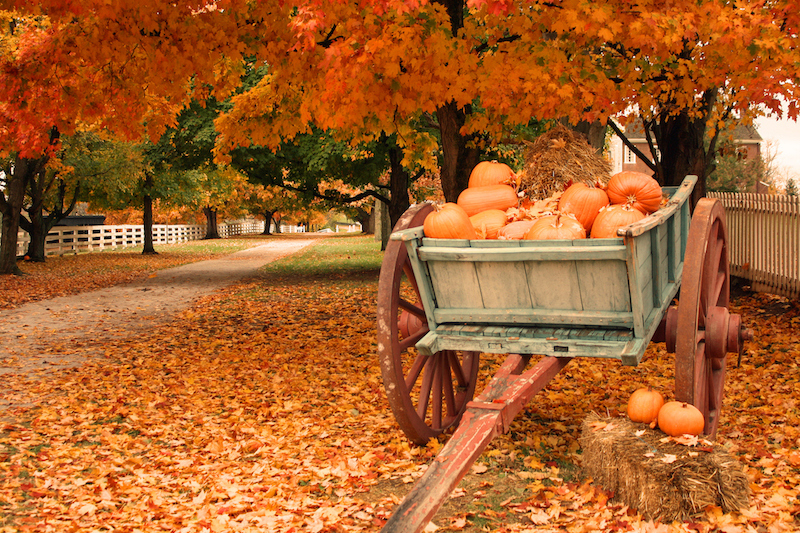The month of October is one of my favorites. With the change of weather and scenery comes a new landscape and mindset.
Trees become a panoply of color, pumpkins and chrysanthemums decorate front porches, and cooler temperatures send us scrambling for sweaters and jackets that had been relegated to the back of the closet. Steamy brews of hot tea and cocoa warm our insides even as the sight of falling leaves reminds us that all things are passing.
Outward appearances seem to validate liturgical readings that caution us against becoming too attached to the things of this world, that the kingdom of God is within, and that heaven begins on earth for those who have eyes to see.
Just as leaves of green are transformed into a panorama of crimson and gold during frosty nights, in a similar manner, the Divine Artist transforms the souls of those who respond to God’s grace, reevaluating values and priorities. Like leaves that turn brown, wither and decay, so we are called to let go of all that keeps us from becoming the person that God intended us to be.
Perhaps no one understood this better than St. Francis of Assisi, whose feast the Church celebrates Oct. 4. Although he was once captivated by riches and revelry and dreamed of becoming a famous knight, his encounter with God transformed him. The converted poverello (Italian word meaning “the poor one”) began roaming the hills of Assisi, praising God and singing love songs to Lady Poverty, but falling in love with the beauty of nature was only the beginning.
His search for the truth eventually led him to the caves of Umbria, where in darkness he confronted his inner demons, surrendered his life to God and discovered perfect joy. When he emerged, Francis was changed. The once flamboyant youth emerged from humanity’s self-imposed prison, looked around and saw God everywhere and in everything.
He related to all of creation as his equal, addressing the earth and sky as brother and sister. When he looked around, every blade of grass, fish and fowl, mountains and valleys, sun and moon all proclaimed the glory of God, and Francis became God’s troubadour. Unable to contain his joy, he invited all the world to join the chorus, and so became one of the most beloved saints of all time.
Likenesses of St. Francis can be seen in churches and museums, gracing front lawns, and adorning birdbaths. He is championed by ecologists, peacemakers, animal lovers and interreligious dialogue partners.
Francis embraced a leper, and it changed his life. He met with and befriended the sultan during the Crusades because he saw no one as an enemy. Francis attracted followers from around the globe long before bloggers competed for followers. In fact, a competition for self-esteem would have been anathema to the humble man of Assisi.
In today’s culture, where the tendency is more inclined to dismiss or demonize the other rather than to listen, we have much to learn from the saint who mirrored the life of Jesus as closely as any saint who ever walked the earth.
The life of St. Francis is a testimony to the power of one united with the will of God. Francis didn’t set out to change the world; he only did what he could do to change himself and then allowed God to do the rest.
Without a plan or a goal, other than to love God with his whole heart, mind and strength and to love his neighbor as himself, St. Francis left a footprint on the world that bore the wounds of Christ, not only in his body but in his heart. Through his many followers, he continues to walk the earth.
We live in a world, wounded by sin, where devastation, destruction and violence are rampant, and so it behooves every Christian to do what we can to relieve the suffering of our brothers and sisters. St. Francis understood what Jesus meant when he said, “Amen, I say to you, whatever you did not do for one of these least ones, you did not do for me” (Mt 25:45).
I can’t help but wonder what St. Francis would have to say were he alive in this century. Perhaps he is in the person of Pope Francis, whose spirit of poverty and outreach to the marginalized offers hope to the hopeless.
It’s fitting that the four-weeklong Synod on Synodality begins Oct. 4, the feast of St. Francis. As participants from around the world come together, we, the Church, can do our part by keeping them in prayer. Not everyone will agree on everything, but when we as Catholics open our hearts and minds to the Holy Spirit and pray, “Thy kingdom come,” great things can and will happen.
Barbara Hughes is an award-winning author, retreat facilitator and spiritual guide. She lives in Virginia Beach and can be reached at [email protected].

